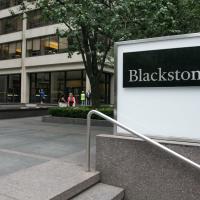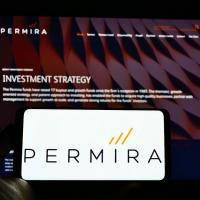Simone Arnaboldi is a private equity veteran and has been a Founding Managing Partner at Arcadia SGR SpA for the past sixteen years. Previously, he was the Director of Bridgepoint’s Milan offices. Ahead of the Private Equity Wire European Emerging Managers Summit, Arnaboldi speaks to us about the opportunities and risks within the PE landscape, how it’s evolving, and how emerging managers can maximise their chances at success.
PEW: You’re vastly experienced in the PE and asset management space. Could you give us an idea of your background and areas of expertise?
SA: I have been working in the private sector industry for over twenty-five years. I joined Bridgepoint in 1996 at a time when they were expanding to continental Europe. I had the opportunity to join the team with the opening of their Milan office. At that time, they were working with the mid-market segment, and after about nine years with them, I left to start a new professional experience.
I joined a start-up in Italy dedicated to the special situations market segment. It took me a couple of years to understand it was a difficult space to operate in, so I set up my own management company – Arcadia with a senior partner from Bridgepoint.
PEW: And what have been some of the significant stages of growing Arcadia?
SA: It took some time because before we started the operations in 2011, we had to apply to the Bank of Italy because the Italian private equity market is strongly regulated. It took more than one year to obtain the authorisation. When we started our fundraising activities, we had to face a very difficult period because the financial crisis had just ended and investors were sceptical of potentially risky investments.
With patience, we succeeded in raising a very small fund, just enough to start with operations. We raised €53m, and then had the opportunity to raise a second fund in 2017 that touched €80m. In October 2023 we completed the first closing at €80m of our third fund, Arcadia Sustainable Capital III, with the aim to reach a final closing next Summer at a total commitment between €120m and €150m.
(Arcadia started operations on the heel of the 2010 financial crisis, and while PE-backed companies decreased their investments less than their peers it was still a period of significant financial fragility – making fundraising for an inaugural fund more complicated than usual)
PEW: What would you say are the three biggest challenges you have faced in the past sixteen years?
SA: The first biggest challenge was fundraising for our first private equity fund – as I’ve said, we did that in adverse market conditions. Fortunately most of our investors are institutional investors, which means Italian pension funds, banking foundations and the European Investment Fund as cornerstone investor. Along with the difficulty of fundraising, we have faced challenges when it comes to growing our team.
This is a people business – so it was fundamental that in addition to myself and the co-founder, we complete the recruitment of the team. There was instability at first, but now we are at a much more mature stage and have a solid management team. The third biggest challenge is that we operate in Italy. So we have to deal with companies operating in a not so easy economic context. The GDP of Italy has always been below the European average. Despite all that, I will say we operate in a very interesting market.
PEW: Now is a particularly tough time for PE and asset management firms. How has your firm navigated the current economic landscape?
SA: The support of investors has been very important in this time, and we are very happy with the results we have been capable of delivering. It has been very important to provide our investors with a clear investment strategy, which is based on investment in the lower mid-market segment with a view to create value.
Growth and professionalisation are the key pillars of our value creation strategies, much more than the use of financial leverage. And to some extent, this approach was particularly appreciated by investors. Many of them are investing money for returns on the one hand, but on the other they also want to contribute to the growth of the Italian businesses, which means increased employment and the improvement of the competitive positions of the many businesses where we invest our money.
(Our recent PEW Insights H1 Review takes a look at themes of navigating the turbulent year that has been and the strategies employed by firms to stay ahead of the curve and to stay resilient – from both GP and LP perspectives)
PEW: And what would you say are some of the measures you and your firm are undertaking to set yourself up for the future?
SA: We are now paying much more attention to sustainability factors and that is something we have started integrating into our investment strategy since our predecessor funds. We have just completed the first round of fundraising on our new fund and have placed it in Article 8 of the SDFR, with the purpose of improving the sustainability of any portfolio companies we invest in.
This is a new frontier for the industry because professional investors now don’t just want good returns on their money, they also want to improve the sustainability of their investment activities. It is a challenge, but it will receive more and more attention – not just from us but the private equity community in general.
PEW: You are speaking at the Private Equity Wire European Emerging Managers Summit next week – what would be the top tips you would give to an emerging manager in today’s landscape?
SA: My first suggestion is to be patient, because it takes time for an emerging manager to make their way up. The suggestion is to never give up. If you have a differentiating proposition, a solid professional background, and the ability to communicate with the investor base, there are big chances for success even if it takes more time.
The second thing is that it is more important than ever to be differentiated from all others in the field – in some way or the other. I think that the investment strategy of emerging managers should be able to identify some more specific characteristics, for example in terms of vertical sectors or as I was saying before in their approach to sustainability. This will boost interest in fundraising activities.
One thing I will say is that people are very important. The people working in your teams are your most important resource to do great things in favour of investors. So pay a lot of attention in order to recruit the right people and pay great attention to the human capital related to your business.

Simone Arnaboldi is a Founding Partner and serves as Chief Executive Officer at Arcadia SGR. He is a speaker at the Private Equity Wire European Managers Summit on the 8th of November, 2023 in London. To attend or learn more, click here.






